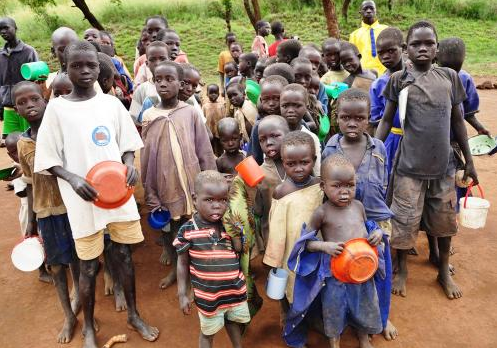The European Union (EU) has allocated €10 million (Shs37.2 billion) to Uganda to finance food production and resilience of food systems. The funding is part of a €600 million allocation from the EU to support the most vulnerable African, Caribbean and Pacific (ACP) countries to cope with the unjust consequences of Russia’s war of aggression against Ukraine, notably the current food crisis and related economic shock.
Commissioner for International Partnerships Jutta Urpilainen stated: “The EU’s swift and comprehensive response to the current food insecurity in several vulnerable partner countries of the African, Caribbean and Pacific area demonstrates our strong solidarity towards our partners, in particular in Africa. It helps shoulder the consequences felt worldwide of Russia’s war of aggression against Ukraine. In the short-term we are helping families with food and nutrition assistance and helping countries to buy the food they need; we also work on solutions to address current and future risks by investing in local sustainable food systems to enhance resilience.”
Commissioner for Crisis Management Janez Lenarčič added: “The newly allocated funds will help those in a dire situation meet their emergency food needs. The EU remains committed to support the most vulnerable. However, humanitarian aid cannot substitute efforts needed to increase resilience of most vulnerable populations. Sustainable development-oriented solutions to end hunger are key.”
The decision to swiftly redirect €600 million to food security in ACPs was announced by European Commission President Von der Leyen in June 2022 and the allocation received green light from EU Member States last month.
This new support will fund actions to contribute to increasing the EU contribution to the Agricultural Business Initiative (ABI) to support competitive, profitable and sustainable agriculture and agribusiness sectors. Through this additional support, ABI will be able to provide financial and technical assistance to agri-businesses, small holder farmers and farmer associations to help them improve their systems, increase their production and productivity and their access to markets.
It will also scale up a programme to increase resilience to food shocks of chronic and acute food insecure households living in Karamoja. Since 2016, food insecurity in Uganda has progressively increased, driven by conflict and insecurity, including in neighbouring countries; delayed and erratic seasonal rains; and the socioeconomic impacts of COVID-19.
The world is facing a global food crisis, aggravated by Russia’s war of aggression against Ukraine. The recently published mid-year update of the Global Report on Food Crises estimates that up to 205.1 million people currently face high levels of acute food insecurity in 45 countries covered by the Global Report on Food Crises 2022. The Team Europe Response to Global Food Insecurity includes four strands of action to be implemented jointly with the EU Member States: 1. Solidarity: emergency relief and affordability; 2. Sustainable production and resilience; 3. Trade: facilitating food trade; 4. Effective multilateralism.
With the additional €600 million, the EU envisages to allocate for food security and food systems programmes in partner countries €7.7 billion until 2024 worldwide. This also includes an estimated €2.2 billion in immediate humanitarian food and nutrition assistance for the most vulnerable countries and a further €5 billion to invest in the medium to longer term in sustainable food systems.








